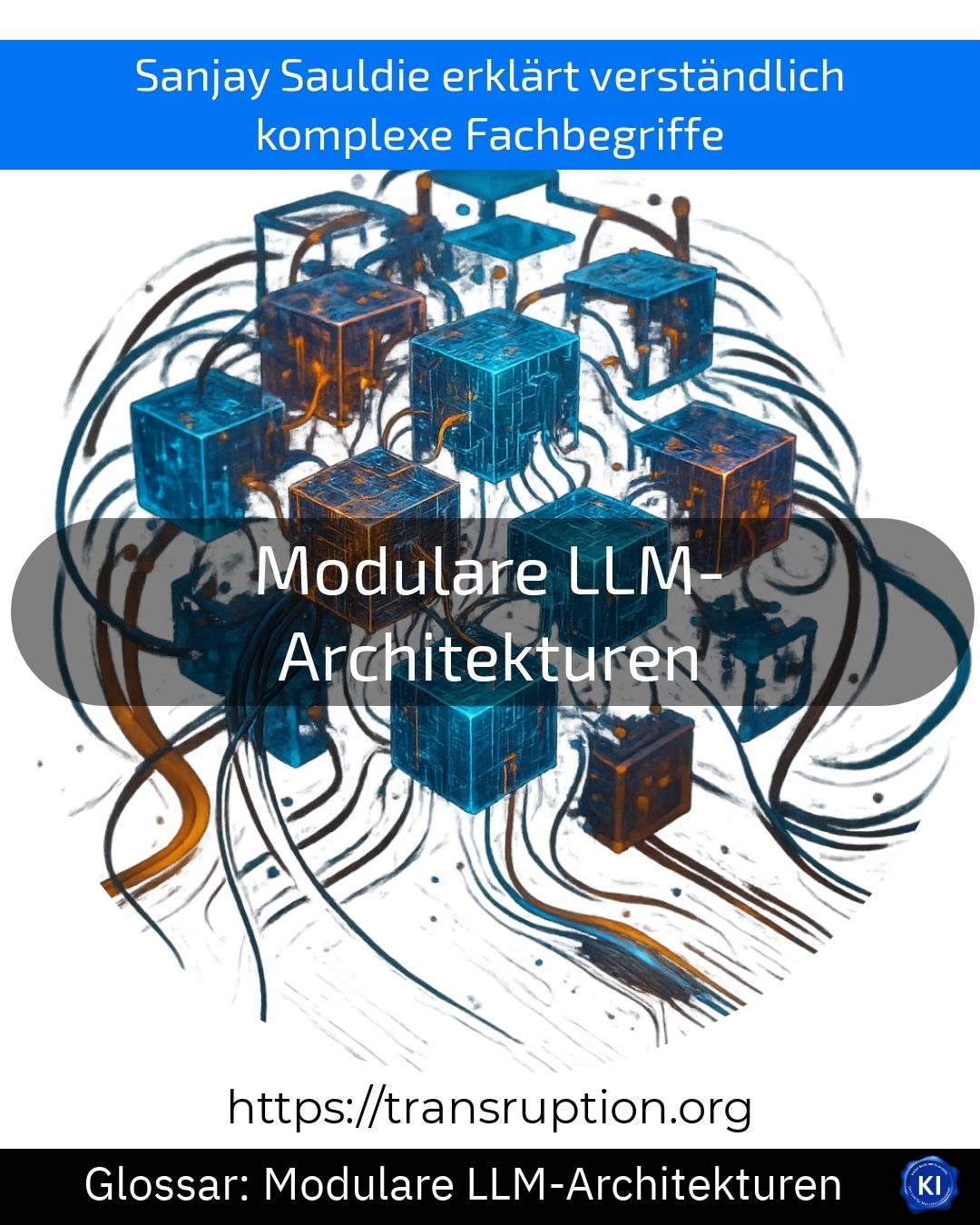The term "modular LLM architectures" is at home in the fields of artificial intelligence, digital transformation, big data and smart data.
Modular LLM architectures refer to the construction of large language models (LLM stands for "Large Language Model") from multiple, independent building blocks. Unlike a single, large model, a modular system consists of various individual components that can be further developed or replaced independently.
This brings many advantages for companies: For example, one module can be developed specifically for customer support, while another module is there for text creation. Both can be improved independently or replaced with new modules without having to rebuild the entire system. This makes the technology more flexible and adaptable - ideal for rapidly changing digital requirements.
An illustrative example: Imagine a large service chatbot system. With modular LLM architectures, the company can use one module for frequently asked questions and another for legal information. If the legal situation changes, only the relevant module is updated. This saves time and money and ensures that you are always up to date.















